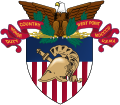
A big band or jazz orchestra is a type of musical ensemble of jazz music that usually consists of ten or more musicians with four sections: saxophones, trumpets, trombones, and a rhythm section. Big bands originated during the early 1910s and dominated jazz in the early 1940s when swing was most popular. The term "big band" is also used to describe a genre of music, although this was not the only style of music played by big bands.

Joseph Norman Alessi is an American classical trombonist with the New York Philharmonic.

Al Grey was an American jazz trombonist who was a member of the Count Basie orchestra. He was known for his plunger mute technique and wrote an instructional book in 1987 called Plunger Techniques.

Doug Lawrence is an American jazz tenor saxophonist from Lake Charles, Louisiana.

The Count Basie Orchestra is a 16 to 18 piece big band, one of the most prominent jazz performing groups of the swing era, founded by Count Basie in 1935 and recording regularly from 1936. Despite a brief disbandment at the beginning of the 1950s, the band survived long past the Big Band era itself and the death of Basie in 1984. It continues under the direction of trumpeter Scotty Barnhart.
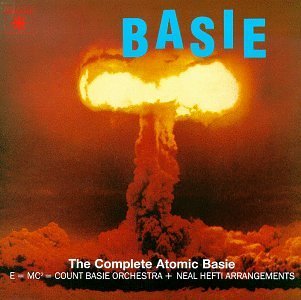
The Atomic Mr. Basie (originally called Basie, also known as E=MC2 and reissued in 1994 as The Complete Atomic Basie) is a 1958 album by Count Basie and his orchestra. Allmusic gave it 5 stars, reviewer Bruce Eder saying: "it took Basie's core audience and a lot of other people by surprise, as a bold, forward-looking statement within the context of a big-band recording." It is included in the book 1001 Albums You Must Hear Before You Die, Will Fulford-Jones calling it "Basie's last great record." It was voted number 411 in the third edition of Colin Larkin's All Time Top 1000 Albums (2000). According to Acclaimed Music, it is the 6th most critically acclaimed album of 1958, the 25th most acclaimed of the 1950s, and the 837th most acclaimed of all time, based on an aggregation of hundreds of critics' lists from around the world.

Herschel "Tex" Evans was an American tenor saxophonist who was a member of the Count Basie Orchestra. He also worked with Lionel Hampton and Buck Clayton. He is also known for starting his cousin Joe McQueen's interest in the saxophone. Joe McQueen, living until 2019 at age 100, may well have been the last surviving person to have known Herschel during his lifetime.
The Eastern Trombone Workshop (ETW) has become one of the largest annual events for trombone in the world. The workshop's mission is to give students, performers, and educators an opportunity to meet and share ideas, talents, and opinions about the world of trombone. ETW regularly hosts participants throughout the nation and abroad. The workshop is held at Brucker Hall—The U.S. Army Band's state-of-the-art performance center—located on historic Fort Myer, Virginia, just across the Potomac River from Washington, D.C.

James Louis Chirillo is an American jazz guitarist, banjoist, composer, arranger, and band leader.
William Henry Hughes was an American jazz trombonist and bandleader. He spent most of his career with the Count Basie Orchestra and was the director of that ensemble until September 2010.

Dennis Mackrel is an American jazz drummer, composer, and arranger who was a member of the Count Basie Orchestra and the Vanguard Jazz Orchestra.
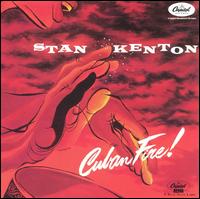
Cuban Fire! is an album by Stan Kenton and his orchestra released in 1956 by Capitol Records. This was Stan Kenton's big band's first full-length recording of Afro-Cuban-styled music. The LP charted for four weeks in Billboard starting on September 15, 1956, peaking at #17. The concept of the original 1956 recording centers on the Cuban Fire! suite Kenton had commissioned from composer Johnny Richards. The 1991 CD re-issue is augmented with one extra track from the 1956 sessions and five cuts recorded four years later by the first of Kenton's mellophonium orchestras.
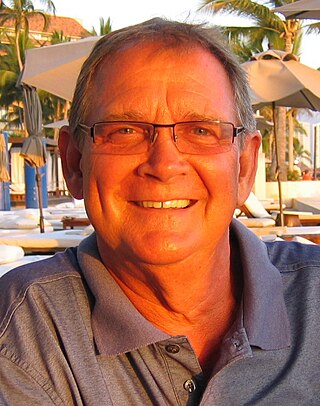
Robert Harry "Bob" Curnow is an American musician who served as a trombonist, staff arranger and producer for the Stan Kenton Orchestra during the 1960s and 1970s. As a composer and arranger he has become well known for large ensemble jazz music set to contemporary fusion and rock music of groups such as Chicago, Blood, Sweat and Tears, and the Yellowjackets. Most notably he arranged the music for and produced the award-winning and critically acclaimed CD, Bob Curnow's L.A. Big Band Plays The Music of Pat Metheny and Lyle Mays. His compositions and arrangements are heavily influenced by earlier writers for the Stan Kenton Orchestra such as Pete Rugolo, Bill Russo, Johnny Richards and Bill Holman. Curnow is currently owner and President of Sierra Music Publications, Inc., he is also prominent in the instrumental music and jazz education fields.
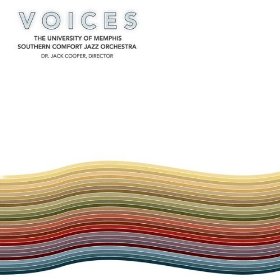
Voices is an initial 2007 compact disc by the University of Memphis Southern Comfort Jazz Orchestra recorded in the studio. This was their 1st full-length feature CD release since an LP recording under the direction of Gene Rush in 1987. Since the late 1960s this group has been consistently recognized as one of the top collegiate jazz ensembles in the country recently being invited to the 2011 Jazz Education Network Convention, the 2000 International Association for Jazz Education Convention, and touring Europe in 1998. Musicians from this CD went on to study with Bob Brookmeyer at the New England Conservatory of Music, Indiana University, work professionally, and teach at universities.

The United States Military Academy Band, West Point, New York is the first CD, digital format album released exclusively by The United States Military Academy Concert Band and Jazz Knights big band.
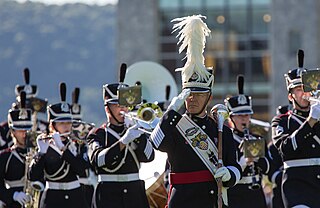
The West Point Band is the U.S. Army's oldest active band and the oldest unit at the United States Military Academy, traces its roots to the American Revolutionary War. At that time, fifers and drummers were stationed with companies of minutemen on Constitution Island, across the river from West Point. In 1778, General Samuel Holden Parsons' 1st Connecticut Brigade crossed the Hudson River and established West Point as a permanent military post. After the American Revolution, Congress disbanded most of the Continental Army, but "the 55 men at West Point", members of the 2nd Continental Artillery, remained as they were. Among their ranks stood at least one drummer and one fifer, who alone maintained the tradition of military music at West Point.
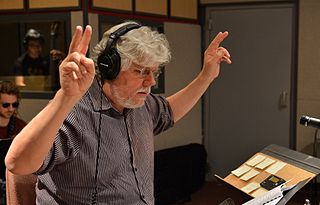
Steve Wiest(néJohn Stephen Wiest; born 1957) is an American trombonist, composer, arranger, big band director, music educator at the collegiate level, jazz clinician, author, and illustrator/cartoonist. From 1981 to 1985, he was a featured trombonist and arranger with the Maynard Ferguson Band. Wiest is in his ninth year as Associate Professor of Jazz Studies and Commercial Music at the University of Denver Lamont School of Music. He is the Coordinator of the 21st Century Music Initiative at the school. Wiest has been a professor for thirty-four of the forty-two years that he has been a professional trombonist, composer, and arranger. From 2007 to 2014, Wiest was Associate Professor of Music in Jazz Studies at the University of North Texas College of Music and, from March 2009 to August 2014, he was director of the One O'Clock Lab Band and coordinator of the Lab Band program. At North Texas, Wiest also taught conducting, trombone, and oversaw The U-Tubes — the College of Music's jazz trombone band. Wiest is a three-time Grammy nominee — individually in 2008 for Best instrumental Arrangement and in 2010 for Best Instrumental Composition, and collaboratively in 2010 for Best Large Jazz Ensemble Album, which he directed. As of 2013, Wiest has in excess of 58 arrangements and compositions to his credit, which include 10 original compositions from his current project (see 2013–2014 project, below).

Kenton's West Side Story is an album by the Stan Kenton Orchestra recorded in 1961 and released by Capitol Records. It won the Grammy Award in 1962 for Best Jazz Performance – Large Group (Instrumental). The album was recorded in 1961 and released quickly to take advantage of the movie premiere of the musical West Side Story. Kenton won his first Grammy Award and he won again the next year in the same category with Adventures in Jazz. Kenton's West Side Story peaked at No. 16 on the Billboard magazine album chart.

Mark Bassey is a jazz trombonist, composer, arranger, educator and band leader.
"Duet" is a 1957 (©1958) big band swing composition and arrangement by Neal Hefti that was part of his larger body of work for the Count Basie Orchestra. His arrangement features two muted trumpets, which – when first recorded in 1957 on The Atomic Mr. Basie – featured Thad Jones and Joe Newman.





















